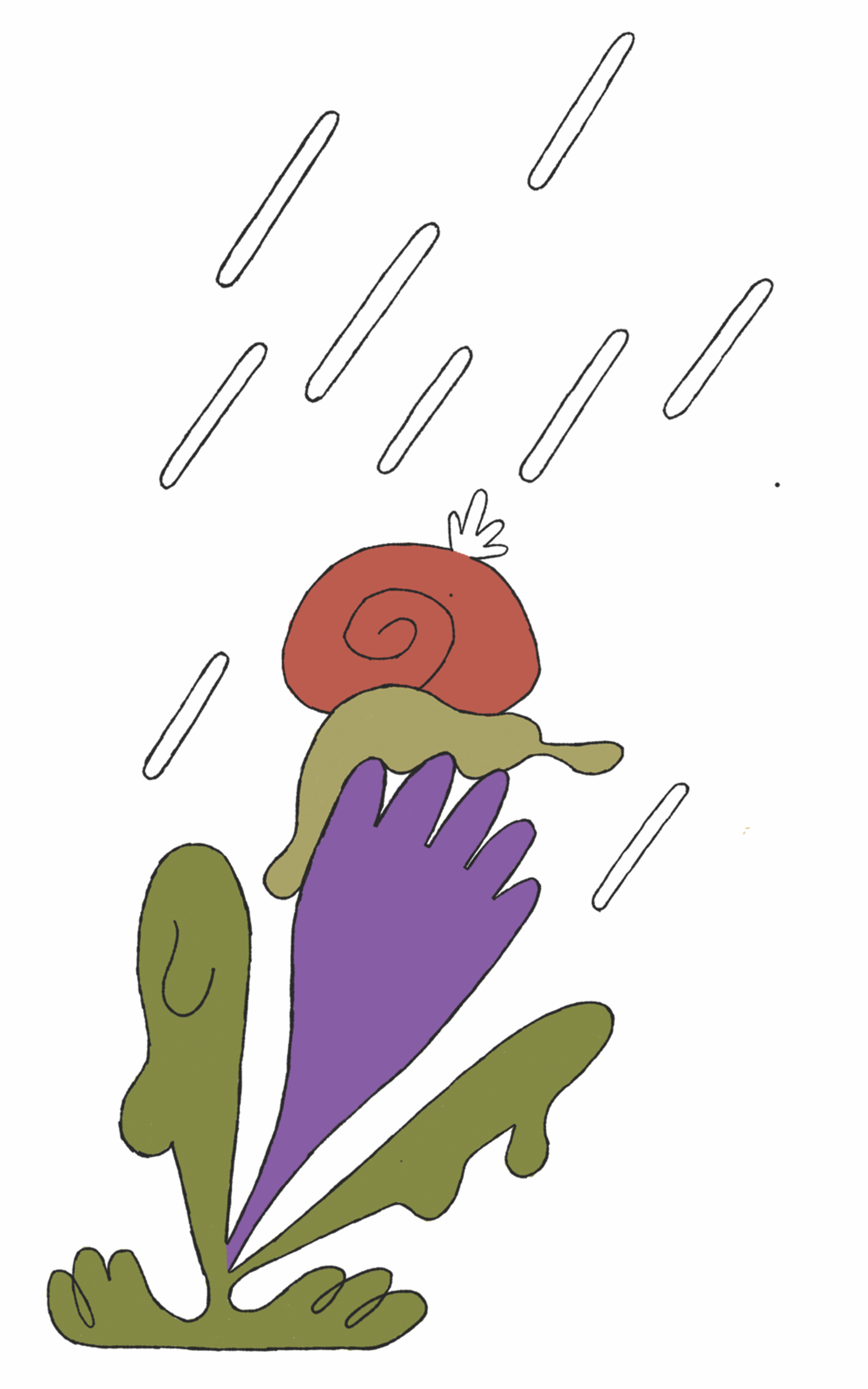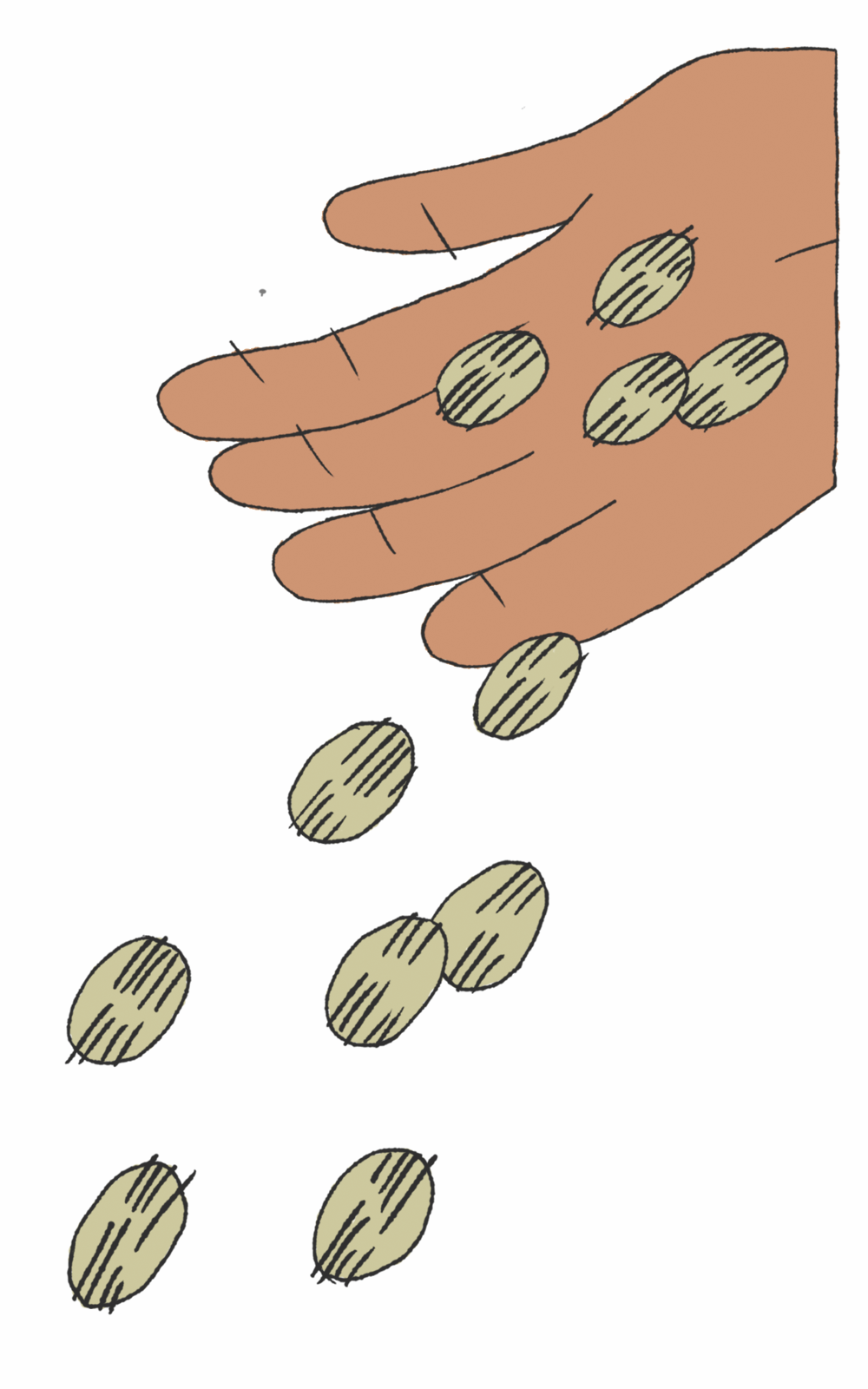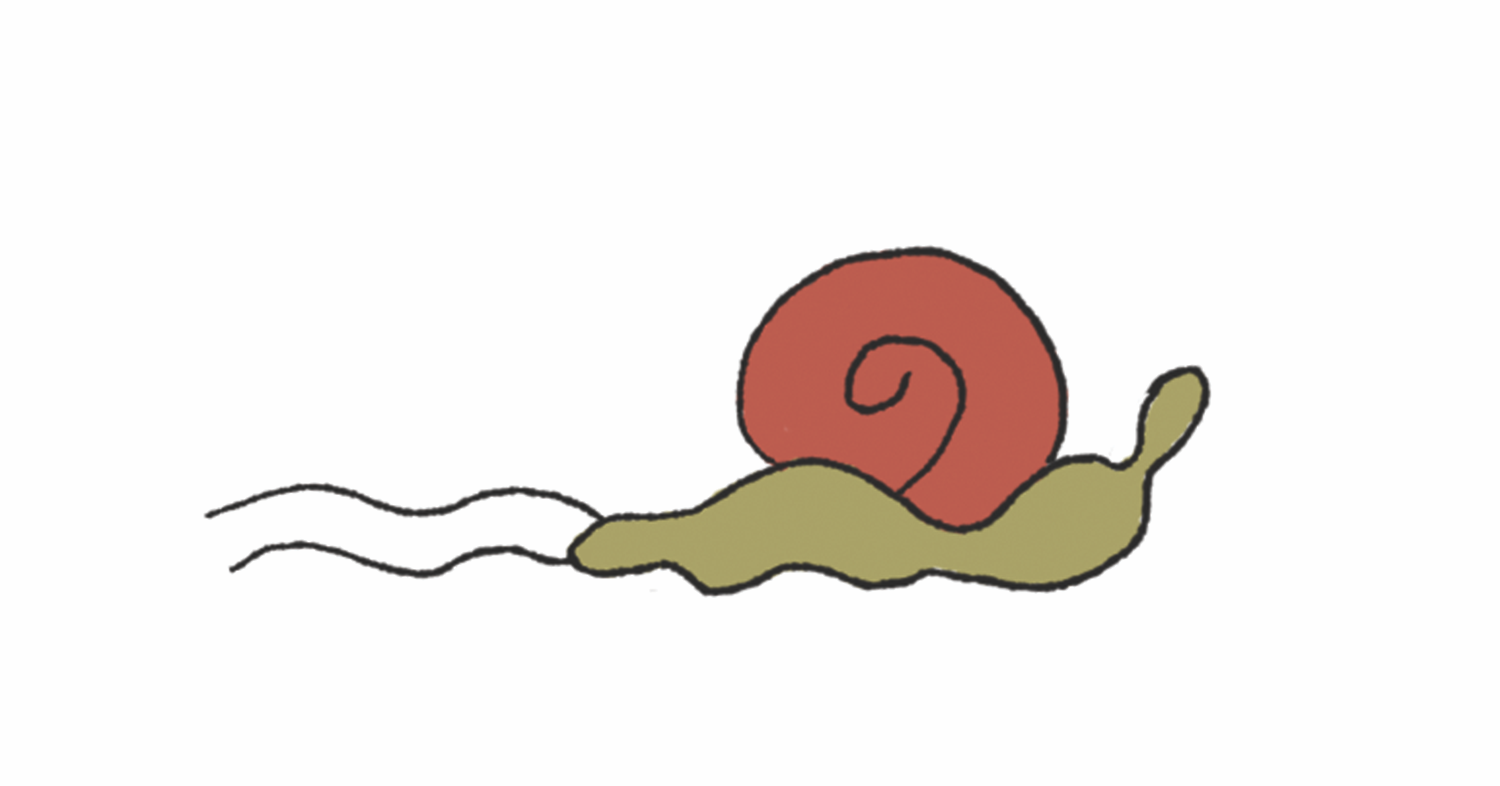
I WANT TO TELL YOU A STORY BUT IF I DO YOU MUST UNDERSTAND THAT I AM JUST A BIRD AND BY THAT I MEAN I AM JUST A BIRD WHOSE TONGUE HAS BEEN CUT OUT I AM NO ALLEGORY AND I AM NO BEACON FOR ALL FLIGHTED THINGS IN THE GARDEN LIKE GRASSHOPPERS OR IDIOT MOTHS JUST A BIRD DO YOU UNDERSTAND DO YOU PROMISE THAT YOU UNDERSTAND PLEASE PROMISE ME PROMISE ME PLEASE
I am a bird a brown bird a hop-hop ordinary bird and the garden where I live is beautiful and wet. I am a small bird and my beak is rounded on the top and sharp at the tip and it is perfect for cracking open seeds fast. Peck-peck crack, peck-peck crack and there are always lots of seeds in the garden. Have you ever stuffed your cheeks with seeds after a morning splash in a cool stone bath? It would delight you, I think.
The other birds in the garden are gorgeous and strong. The grackles turn under the sun and their black feathers burst into spectrums of green and blue and purple. The finches tell jokes only they think are funny. Once, a cardinal told me she lost her more vibrant lover to the jaws of a common raccoon. Can you imagine such an undignified end? There are plenty of seeds, though the pigeons always take more than their share.
For three hours I had an older sister but she fell from our nest on the mossy slope of the garden shed and suffocated in some mulch. My baby brother chose to stay inside his egg. My mother coaxed warm mush down my throat and before departing herself one day nudged me from the roof to prove I had nothing to be afraid of. Boy oh boy could I fly! You could say I was a natural.
The first place I flew was the window of the big house on the edge of the garden. I wanted to thank the woman with the long black hair who gave us our seeds. When I peeped over the edge of my nest, I would see her with a bucket on her hip, bobbing and straightening like a twig in the wind, scattering seeds across the grass. She walked back to the house slowly, her feet sinking into the soft earth.
I flew to the window and inside I saw the woman with her long black hair falling all down her back and she stood in a blue room with clean and shiny objects on the walls. Big round discs and smaller things that looked like tiny buckets and a ball hanging from above like her own private sun. In the room with the woman was a man and he was big, oh he was a big big man with a big wide chest that stretched out like the chest of the hawk who had flown through the garden and snatched one of the finches. His mouth was open and his arms were flapping, flapping up and down and all around and doesn’t he know that he’ll never get off the ground that way? I saw him take a shiny round disc from the wall and hurl it at the woman and she turned so quickly her long dark hair had to follow her down to the ground where she fell with the disc’s pieces.
She did not see me at the windowsill. Instead she watched the man leave the room and then she took her naked hands with no claws and no feathers and used them to smack herself on her head. Bap-bap-bap. Bap-bap-bap. She picked up the shiny pieces and I left to yank a worm out of some loose dirt.
Let me tell you how one afternoon I escaped the quickness of a cat. I was down in the grass peck-peck cracking my seeds and savouring their sweet sweet meat when the widow cardinal screeched and I saw her bursting through the air.
A white cat landed silently where she had been sitting. It was luminous, quite honestly speaking. I wish you could have seen it. Its fur looked like tufts of frost and its eyes were so round and firm it seemed they might at any moment burst in its head. Moving like the water that runs from the lip of the stone bath, it crept towards me and I, young and not truly understanding that death was impending, said,
“Excuse me, cat. Do you know what it’s like to fly?”
“Of course not. I’m a cat, stupid,” said the cat.
I had been stupid. “Of course, of course,” I said. “Would you like to know what it’s like to fly?” Then before the cat could answer I said, “Have you ever been swimming? In water?”
“Once,” said the cat, lowering its hindquarters slightly. “And I hated it. I fell in a duck pond in the summertime and all the ducks laughed at me.”
“Ducks will do that,” I said, though I had never met a duck. “The feeling of the water holding up your belly and making your limbs feel all bouncy? That is nothing like flying. Cat, are you fast?”
The cat propped itself on its four paws and licked one of them. “You could say that,” he said.
“Well, imagine yourself dashing through a field at dawn and your speed is such that your paws barely touch the grass and the wind flows so smoothly around you that your body forgets it is a body and thinks it is the wind itself.”
The cat was nodding, its round bursty eyes upon me.
“Flying is nothing like that. Flying is hard, hard work. Your shoulders ache, constantly. And above all, it is cold. So cold! Nobody tells you that. Trust me, cat, you are missing nothing by being on the ground.”
 Because we could, we talked a bit more, mostly about our common hatred of squirrels and then the cat left the garden with its tail swishing through the flowerbeds. The birds called me a hero, all except the pigeons who said that the cat simply couldn’t be bothered to exert the energy to pounce on a meal so small.
Because we could, we talked a bit more, mostly about our common hatred of squirrels and then the cat left the garden with its tail swishing through the flowerbeds. The birds called me a hero, all except the pigeons who said that the cat simply couldn’t be bothered to exert the energy to pounce on a meal so small.
Have I ever been in love? Yes, once. With a glowing crocus who pushed herself from the soil one spring and yawned boldly at the wide sky. But I am not merely superficial. She was lovely, yes, but I was drawn to the way she shone at the dirt around her, at the aphids and the pebbles and the crusts of slime the snails left on their drunken journeys home from nights of drinking dew. She knew, we all knew, she had days to live. Days! Can you imagine? And she shone so easily, so generously, my heart was breaking even before she died, and she did, falling soundlessly beneath a warm rainstorm. The earth ate her up again greedily. I like to think she listened when I spoke to her and sang to her.
After she died, I tortured an ant.
Forgive me, this is my moment of greatest shame. As a militant little line scurried through the grass, the ants all hoisting seeds on their backs, I, grieving, drove my beak into the ground close by. One ant broke from the line and hurried away from me. I struck again, missing her by calculated centimeters.
“Must get back, must get back,” I heard the ant muttering.
“Leave her be, why don’t you?” I heard a grackle reproach.
But I was feeling hot and blind like the sun was glaring directly into my eyes though there were clouds that day and the ant was so small and stupid running this way and that way as I struck and struck the ground, making her lunge and stumble exactly where I pleased. Of course, I let her go, and she, still clutch- ing her seed, rejoined the line. I felt just awful and dumped my share of seeds next to her anthill but I don’t blame her if she never forgives me.
So you understand that I am just a bird and one evening I was looking at the window of the house where the private sun was still shining and there were two fewer discs on the walls and one fewer tiny bucket. The man was not there flapping his arms but the woman was there and she was right next to the glass. Her hair rested against either side of her face and her face was wet like it had been raining in the house. Her hands, still with the raw nakedness of a newborn bird, pressed against the window. What was she looking at? Fluttering against the glass fraught moths bumped their hairy bodies around her head, for they were infatuated with the private sun, but the woman did not look at them. Her mouth moved, a circle, a line, a circle, a line.
The next day, I could not believe what I saw. The window was open! I was scared, very scared, yes, to go into the blue room but the private sun was sleeping and the most delicious smell was coming from the house. Sweeter than an apple core, richer than a crust of brown bread. I flew to the windowsill and saw a golden mound sitting in the room and it was making that smell, I knew it. Did I enter the blue room? Here is where I should have simply minded my own business and gone back to my reliable seeds in the grass, but no.
In I flew, under the sleeping sun and onto the golden mound. Oh it was warm! I had not been so warm since the sun had last summer beaten down on the stone bath. And the smell filled up my whole body and I sang a song as I sat there, feel- ing full before I began to eat, which I did. It was the softest thing I had ever tasted and the sweetest. Light and crumbly but melting away into a delicious syrup in my mouth. I must have been shaking.
“Hey,” I called to the finches and the cardinal and the grackles and even the pigeons. “Hey, you have to get in here! You have to try this golden –”
Her hand came down before I knew she was near me. It wrapped around my whole body just like the falcon’s talons had wrapped around that finch. It was dark. I could not flap my wings.
“I’m sorry, I’m sorry!” I shrieked. “I should not have touched your food! I’m sorry!”
Her bare raw hand was warm, hot. She squeezed it around my wings and my little head poked out the top of her fingers. I heard, roaring in my ears, her breath. She was breathing like the wind in the leaves before a thunderstorm.

With me in her fist, she walked across the room and reached into a box on a shelf. She took out something silver, pointed, sharper than a talon. Its tips looked like the razor pinchers on the spiders that in the night drop from trees on strings that look as innocent as moonlight.
I screamed, “I’m sorry! I’m sorry! Let me go please!”
In my beak went the pinchers and then my tongue was gone.
Yes, of course it hurt. But the worst part was the blood that filled my throat. It poured down my throat and I choked. Gak-gak-gak!
Then I was falling through the air and I landed on the floor and pain, oh pain was beating and rattling around my bones and I kept choking gak-gak-gak! And beside me was my tongue, slick and horrible, small.
Not knowing what else to do, I picked it up in my beak. It weighed almost nothing, the same as an unopened bluebell, a young bumblebee, the husk of a sunflower seed.
Above me, the woman was making a noise like the racoons do when they fight to the death over fish heads and rotting cabbage. Dropping my tongue, for what good was it, I flew through the blue room and over the windowsill and into the gar- den, where I fell into my nest on the shed and I’m quite sure I would have died if a grackle had not stopped by to chat and found me unconscious, the twigs soaked red around me.
The birds brought me seeds and cracked them for me. They left me moss drenched in water. Little by little, I stayed awake throughout the day and my wings started feeling less like wood and I could fly carefully down to the grass.
The garden is peaceful, beautiful, wet. The woman leaves more seeds on the grass now, but I hide in my nest when she comes out, dragging her feet across the soil as if she is hoping the earth will eat her up like it did my crocus. The stump in my mouth aches every day, and I miss the taste of sweet seeds and cold water. The story of the golden mound in the blue room is closed in my beak wand these birds will never know it. I show them my stump and I try to screech and they nod and say to each other, “Must be awful, must be awful.” But they go back to chatting and the finches tell their jokes and I stay up nights alone soaking in the stone bath when the garden is quiet. The cat comes back one day to complain about the squirrels but does not stay long when he realizes I cannot answer him.
Now that you know this story, that I am a bird and this is how I lost my tongue, you must turn your head and look at me. You must. I know you can hear me, bashing my wings against the glass, because you must hear me. All you have to do is turn your head, just a small and common motion. Here I am! Look at me look at me look at me look.
